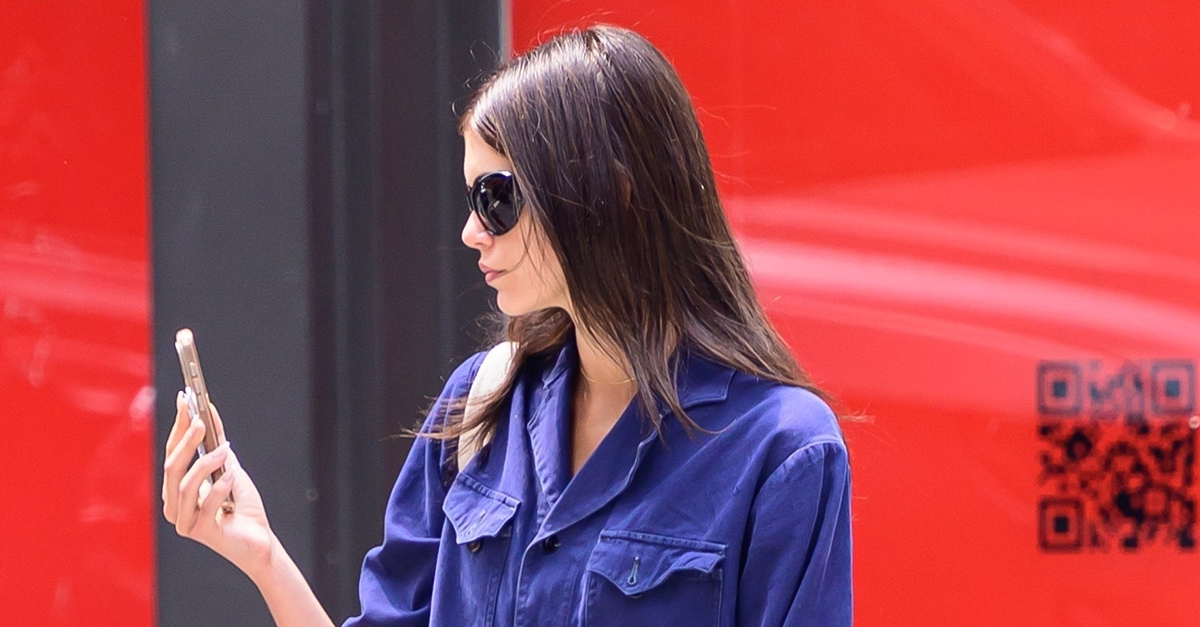Interview with Bae Doona
In this exclusive interview with acting legend Bae Doona, we talk about how roles choose her, her favorite restaurants in Jeonju, and the importance of looking back.
Bae Doona – model, actress, and one of a select Academy members from South Korea to date – is a trans-Pacific legend. Since her debut in “The Ring Virus” (1999), her stern, but honest demeanor has made her a beloved household name. She has since been worked with major directors that we now equate with independent Asian cinema, including collaborations with Park Chan-wook (“Sympathy for Mr. Vengeance, 2002), Bong Joon-ho (“The Host”, 2006), and Hirokazu Koreeda (“Air Doll,” 2009). Her more contemporary appearances have broadcast her name overseas, such as her recent collaborations with July Jung‘s Cannes-premiering feature, “A Girl At My Door” (2014), “Matrix”-directing Wachowski sisters’ (“Cloud Atlas” (2012) and “Sense8” (2015-2018)) and more recently, Netflix’s wildly popular zombie period drama, “Kingdom” (2019). Bae Doona has since made the rounds in the West, cementing her fame well beyond the Korean stage.
Now entering her third decade of her film career, Bae Doona is committed to the act of reprisal. In 2022, we saw two projects released with directors she has previously worked with: Hirokazu Koreeda (“Broker,” 2022), and July Jung (“Next Sohee,” 2022). The latter film, “Next Sohee,” follows how a high school student, Sohee, is eventually pushed to the edge during her vocational externship at an abusive call center. On the occasion of this feature’s North American theatrical release, we had the opportunity to talk to Bae Doona about her most recent role as the detective investigating Sohee’s death. Over the course of this exclusive interview (conducted mostly in a wonderful melange of Korean and English), we talked about how certain roles choose her, her favorite restaurants in Jeonju, and the importance of looking back.
This interview has been edited and redacted for clarity. The original interview was conducted in Korean and translated by Grace Han.
: I have always felt proud [of “Next Sohee”]. This is a no-frills feature that illustrates a high-pressure situation in even the mundane day-to-day. Since the film’s initial release, we have seen society gradually change. For example, the “Next Sohee Protection Act” has since passed in South Korea [which protects students who extern at companies].
People assumed that I naturally fell into this role because of my work with July Jung on “A Girl At My Door” (2014). In truth, I just fell in love with the script at first sight. I cried a lot [upon reading the script for “Next Sohee”] and thought to myself,“I would like to be a part of this story.” I would have been satisfied with any role other than Oh Yu-jin, such as Sohee’s mother. I really wanted to be a part of this movie. I thought it was beautiful because it was based on real life.
Not even five minutes. (laughs) For “A Girl At My Door,” I called [my agent] immediately upon receiving the script. For “Next Sohee,” I thought to myself, “Maybe I should wait at least an hour before I call back, because I don’t want to seem too easy.”
Actually, I usually stick to the script to the T. Even when I was younger, I thought it was best to honor the script. When I worked with Bong Joon-ho, Park Chan-wook, Kore-eda Hirokazu, I thought that all of these directors put a lot of time into the script. As an actress, I envisioned myself as a medium for what they imagined. There are certainly times when I would have an unconscious reaction or idiosyncrasy, but then the director would make the most out of that. This time, for “Next Sohee,” I don’t think this happened at all.
Moreover, I imagined Oh Yu-jin and I would be similar in personality. She enters Sohee’s story without much reason or ulterior motive of her own. It seemed to me that she saw herself in Sohee, and I see myself In Oh Yu-jin. So in truth, it’s hard to say if it’s Oh Yu-jin, or Bae Doona, on the screen. Even though I performed according to the script, the role came very naturally, as Oh Yu-jin’s character holds a lot of resonance for me.
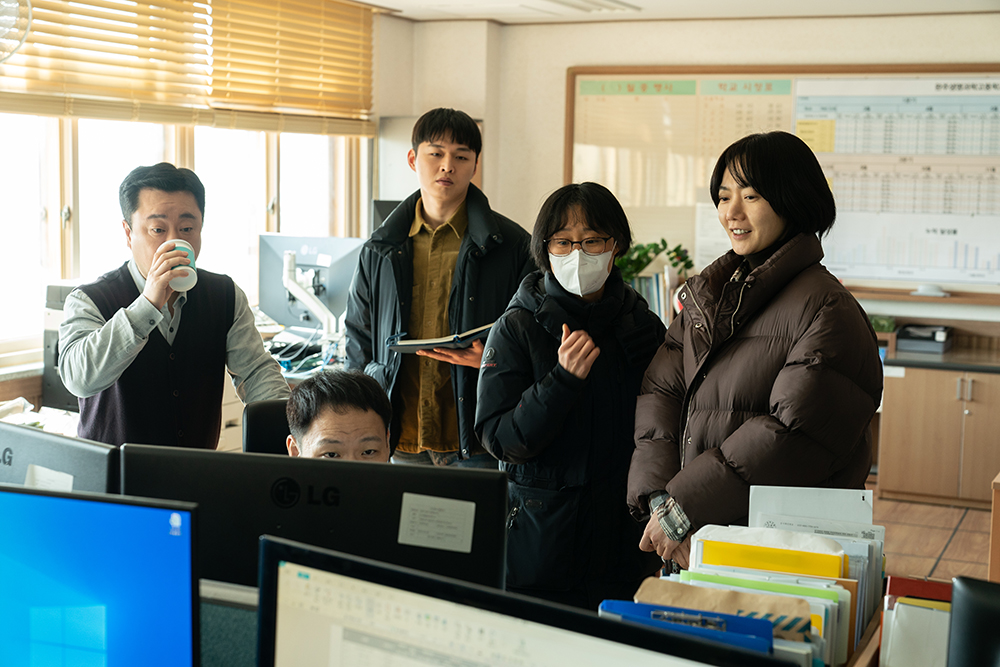
We only appear in two scenes together, but we were almost always on set at the same time. It was like we were doing a baton touch [in a relay race]; we would pass on the next “shift” on-set to each other.
When I watched the Part I takes [before my scenes], [Kim Si-eun and I] thought, “Oh, this movie will be a success. It is definitely relaying the message that we wanted it to.” [Kim Si-eun’s] acting was so neat and matched the tone of the film very well. After seeing her, I thought to myself, “Okay, so now I just need to do well, and the rest of the film will be set.”
When we filmed on-set, it was a very cold winter. But for some reason, [Kim Si-eun] was always wearing slippers. In Korea, winters can get very cold here – oftentimes, minus-10 degrees Celsius – but [Kim Si-eun] would always wear blue Crocs in the freezing cold. I gave her some hot packs to warm her feet. She never used them, though. I realized later, “Oh, she must have done this to get into character, as Sohee also has a scene when she wanders around almost barefoot.” I was very touched by her dedication.
Fur-lined shoes! Padded!
2 months. January and February. In Korea, these are so such cold months.
Yes, almost all of it, and neighboring small cities, like Iksang.
The food was amazing. Sometimes I go down to Jeonju just to eat the good food around there. When the Jeonju IFF invites me, I always go, so I can enjoy the local cuisine.
There’s a “carrot kimbap” there, called “Oh Seon-mo’s Traditional Kimbap” (오선모 옛날 김밥) They only have 1 menu item: carrot kimbap, with carrots, yellow radish, and rice. It’s so delicious. There’s another place called “Daegirung Jjimbbang” (대기룽 찜빵). This is also so good. And finally, there’s a place called “Hyundai Ok” (현대 옥) which is in the Nambu Flea Market (남부시장). There’s a beansprout kukbap (콩나물 국밥) there that you should definitely try. “Grandmother Somshii’s Red-bean Shaved Ice” (외할모니 솜시의 팥빙수) is also amazing. Ah, there is always so much to do in Jeonju. (laughs)
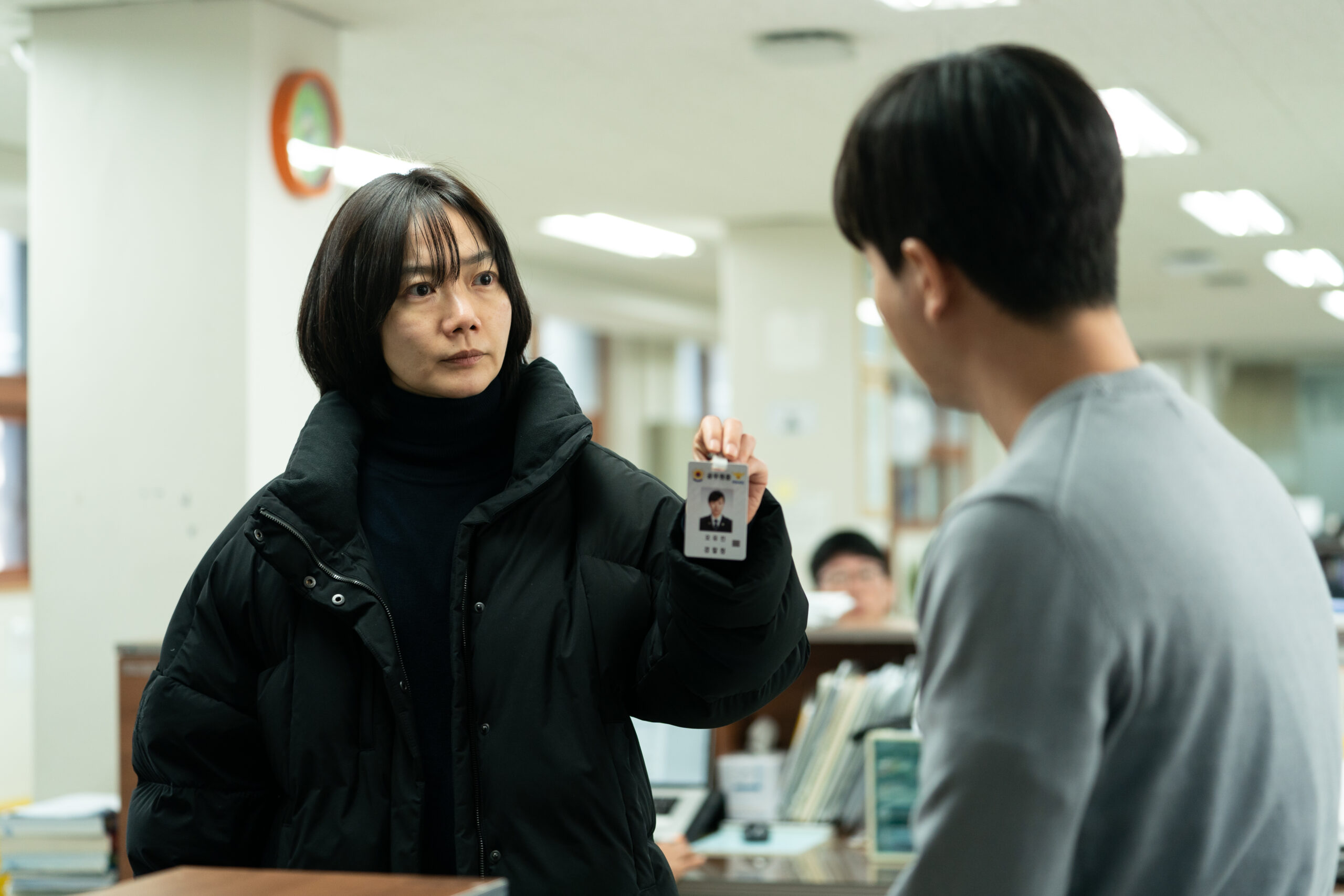
(in English) I think they chose me.
(in Korean) It just so happened that way. I do think that we have to live according to your conscience. It annoys me when people don’t. Perhaps, because of this, I often do choose roles [like these]. But perhaps it is also the look in my eyes? The angle of my face? Well – at any rate, I seem to be constantly cast for roles that are related to “detectives,” or “police officer,” or “guardian.”
Even when I was younger, I could never manage to play any villainous roles. Maybe I look too kind. But I do think it would be nice to play a role that would be totally unhinged, or dismantle the current status quo. For example, in “Family Matters” (Coupang Play, 2025), I play a character who is not very love-able, and in fact, causes a lot of harm. As I was doing this, I thought to myself, “Maybe this is one step closer to playing a bad guy.”
I cut my bangs for “Kingdom” (2019), but even there I am playing the role of a kind doctor. In that role, I’m researching ways to save humans from zombies. Your guess is as good as mine. (laughs)
It’s hard to say what exactly the appeal is. Maybe directors like my neck? They often ask me to cut my hair short. (laughs)
We usually match the style to the character. But for Oh Yu-jin, I brought clothes that I have already worn before, or was dressed in clothes that seemed like I had worn for a while. The black padded coat was mine; and in “A Girl At My Door,” the clothes were mostly mine, as well. In “Take Care of My Cat” (2001), the character of Tae-hee had to wear clothes that reflect that she has been wearing the same outfits since childhood. So we sourced the clothes from a vintage market. I like more “real” styles. At any rate, I don’t think I match well with the profile of a well-to-do, wealthy woman.
In “Sense 8,” I played the role of a rich person’s daughter. There, I wore some flashy clothes.
(Laughs)
Modern-day lifestyles have us only looking towards the future, with an emphasis on moving forward, competing, blindly reaching for success, at the cost of a lot of stress. However, if we just keep moving forward, we also lose sight of those trailing behind us, like those who are young and more inexperienced. I think it’s crucial for us to stop and take a look back, every now and then.
This ethos of slowing down, focusing on youth, reminds me of some of the early films of Abbas Kiarostami.
(in English) Kiarostami?! I love him so much.
(in Korean) I loved his film, “Where is the Friend’s House?” (1987), so much. I cried so much. We must have similar tastes.
What kind of legacy do you want to leave behind?
Though I am interested in engaging with the contemporary moment, I want to be known as a hard-working actress. I am taking everything day-by-day, and I want to act from my heart. I hope I do not get swayed too much by trends.
Finally: we’re in a world of crisis right now. In “Next Sohee,” you presented yourself as a wise figure for Sohee. Do you have any message, or words of wisdom for the youth?
Don’t do things that you are told to do. Do what you really want to do. In Korean society, we often operate based on the expectations of others, our parents, and just try to aim for success. But I think it’s important to take things day-by-day, and to focus on the happy moments.
In truth, I don’t have much to say to the youth. But for adults who continue without a conscience, for adults who prioritize money over other people – I have a lot to say to them!
“Next Sohee” will play in North American theaters from 13 Friday, 2025. Distribution managed by Echelon Studios. Further details (and a giveaway!) can be found on our Instagram (@asianmoviepulse).
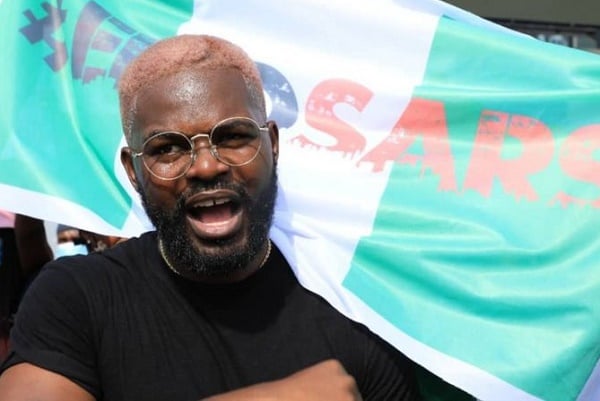



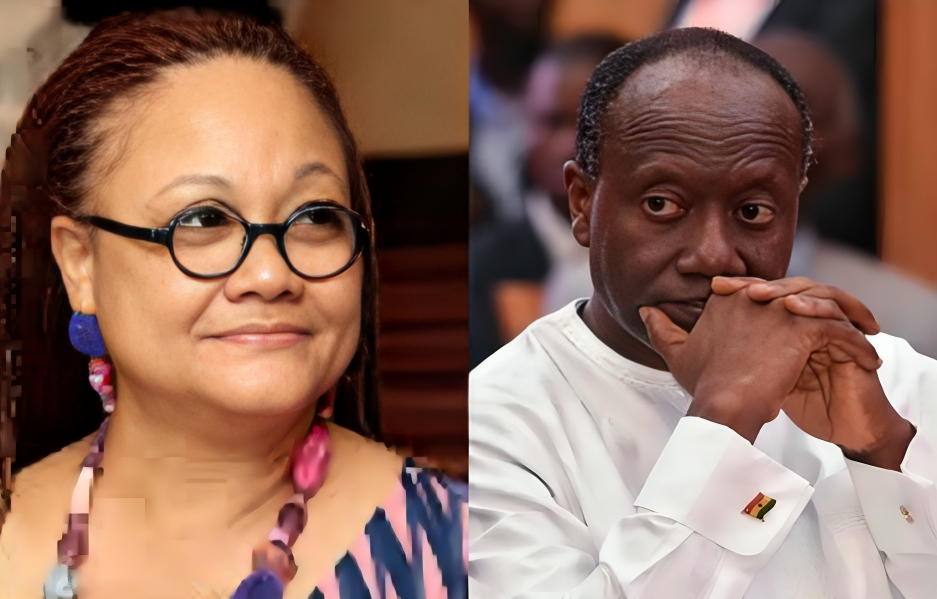



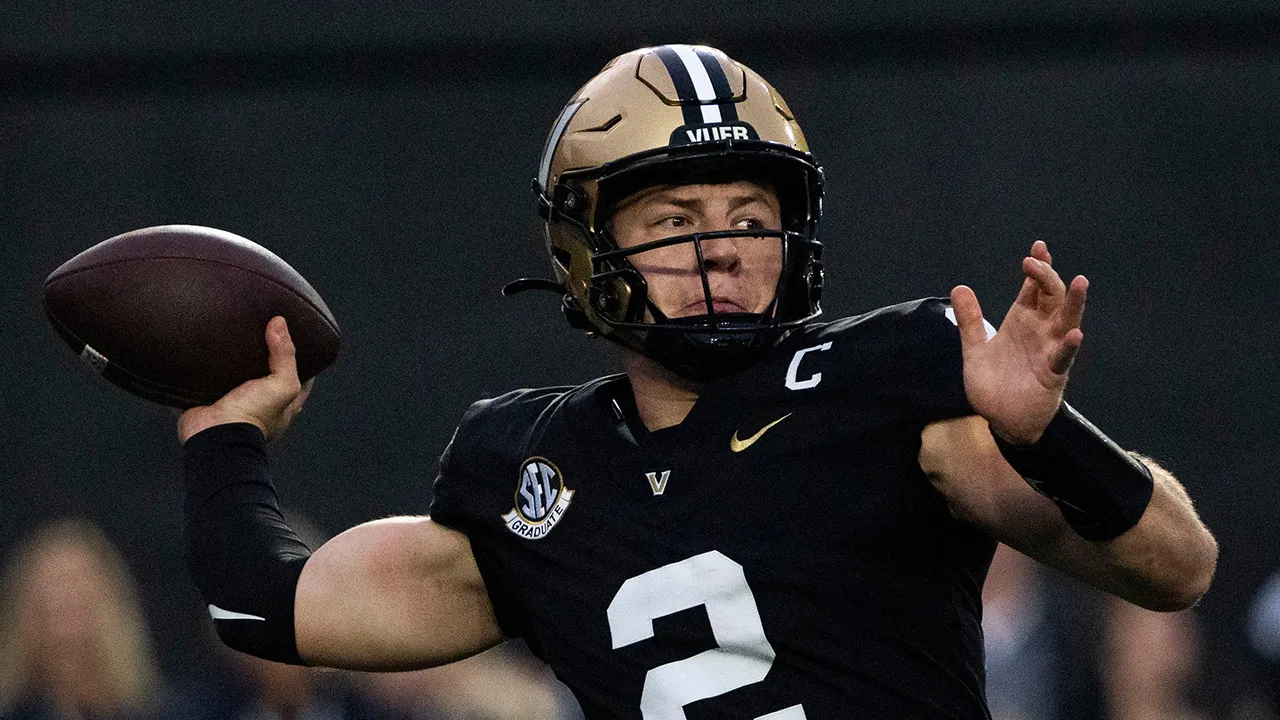
:max_bytes(150000):strip_icc()/PARENTS-Megan-Fox-babyname-63983dbd71c14b20bc43d3ebbf1d30a5.jpg)
:max_bytes(150000):strip_icc()/Parents-Kids-Movie-Trivia-6be98ecd89b84387a55c8164c527081a.jpg)
